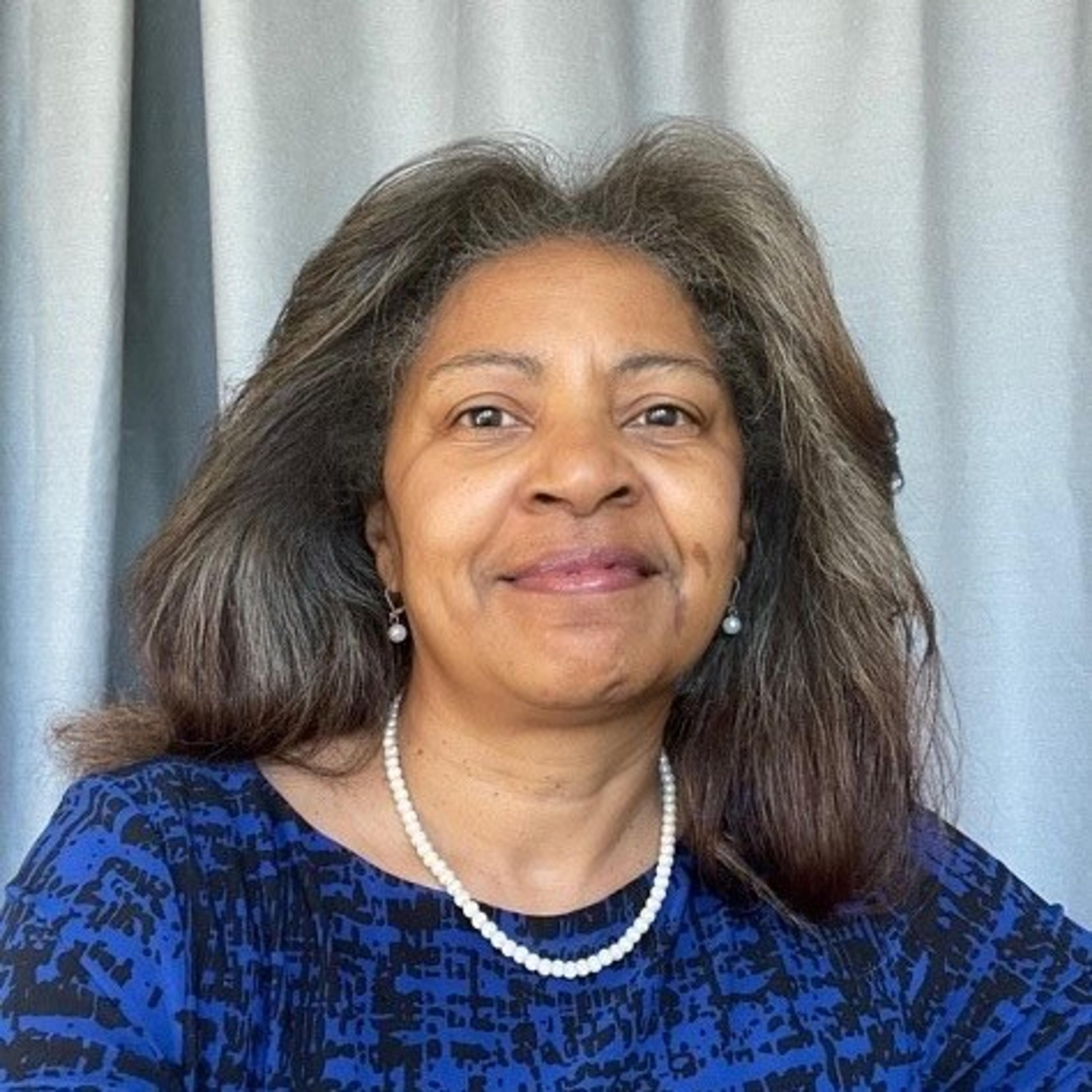‘You Don’t Have to Suffer Silently:’ Examining Women’s Health Disparities and the Importance of Self-Advocacy

Dr. Patricia Ferguson, M.D.
| 6 min read
Dr. Patricia Ferguson, M.D., is a former medical director at Senior Health Services, Emergent Holdings. Emergent Holdings is a separate entity contracted by Blue Cross Blue Shield of Michigan to perform administrative services for Blue Cross’ Medicare Advantage program. She is a fellow of the American College of Obstetricians and Gynecologists and is a member of the National Medical Association. She is a founder of the 501(c)3 nonprofit organization Each One Teach One.

Discussions about disparities in women’s health equity must be had if progress is to be made. Dr. Patricia Ferguson, M.D., Medical Director of Senior Health Services with Emergent Holdings – a Blue Cross Blue Shield of Michigan subsidiary – believes if we can become more comfortable having difficult conversations, the easier it will be to normalize addressing issues of serious concern.
Progress to reduce these disparities is made each day, but there is a long way to go. A 2019 survey found that more than 50% of American women, compared to 25% of men, believed gender discrimination in patient care is a serious problem. Dr. Ferguson believes statistics like these show that gender bias persists across health care.
“The data indicates disparity in the perception of the problem,” Dr. Ferguson said. “If we see a 25% discrepancy in how women versus men even perceive the problem, it will be difficult to gain support to addressing the concern. More concerning is the experience women have, when they don’t feel they are being seen, heard, and taken seriously.
Why are women’s health concerns dismissed?
Since the founding of modern medicine in the United States, women were often labeled as the lesser gender by medical professionals. Their pain and illnesses were often shrugged off and attributed to their emotional state.
"The literature indicates that 1 in 5 women will say they have felt that a health care provider has ignored or dismissed their symptoms, and of those 1 in 5, 17% say they have been treated differently because of their gender,” Dr. Ferguson said. “I have seen and heard of examples of biases like this; women who have had their complaints of chest pain dismissed and attributed to a behavioral health condition."
One study revealed that middle-aged women with chest pain were twice as likely to be diagnosed with a mental illness than their male counterparts. Another study found that women who visited emergency rooms with chest pain waited longer to be examined.
“Depending on the circumstances, a man potentially might undergo an exam and additional testing to include a thorough exam, lab studies, an EKG, and possible observation to make sure he has not suffered a heart attack,” she added. “This might be based on the assumption that a man has a high-powered position, under stress, and is at a higher risk as a male.”
How the exclusion of women in U.S. clinical trials affected women’s health
Prior to 1993, the inclusion of women in U.S. clinical research was not federally mandated. The underrepresentation or exclusion of women in clinical trials drastically slowed the medical understanding of women’s health. For much of the 20th century, medications were developed solely based on men’s physiology and DNA, creating a host of issues for women seeking treatment. Women now account for roughly half of all participants in National Institutes of Health supported clinical research.
“Evidence-based medicine is supported by scholarly research pertaining to any particular subject studied, to produce data. This data is objective, and designed to produce valid, significant responses from men and women. This is designed to eliminates biases which resulted from previous studies which only included men.” Dr. Ferguson said. “Because so many more women currently participate, the data regarding women’s health concerns is now supported by research which includes women. At least 50% of women participate in most scientific trial, which improves our database.”
How disparities increase when race is involved
Disparities in pregnancy-related care among Black and white women is another important area of health inequity.
“Black women are three times more likely to die from a childbirth-related reasons or have higher rates of severe maternal-related morbidity,” Dr. Ferguson said, quoting a Centers for Disease Control and Prevention (CDC) stat. “When you normalize social determinants of health, education, socioeconomics, implicit bias associated with race and ethnicity seems to be the underlying variable associated with disparate outcomes.
Misinformation and stereotypes – such as Black women having thicker skin or a higher tolerance for pain – have seeped into modern teachings of medicine, she added.
As recently as 2020, Dr. Ferguson said she observed a nurse and colleague — who is an educator — share a passage form a textbook stating that African American women have a different pain threshold and are more demonstrative of their pain-as a justification for discrepancies in administration of various options for pain management during labor. The history of modern Obstetrics and Gynecology contains documentation of experiments done on African American women to develop surgical techniques and procedures, without the benefit of anesthesia.
Making progress and finding solutions: The importance of checking biases, self-advocacy
Implicit bias training is mandatory for physicians. Dr. Ferguson said that the training is viewed by some in the medical community as nothing more than a box to check. She believes that conducting these trainings in a way that inspires transformational change in intrinsic beliefs such as integrity and justice will cause the change necessary to mitigate the negative impacts of implicit bias.
Dr. Ferguson added that achieving diversity among health care teams must be about more than mandating training and completion of that training. When health care systems provide culturally intelligent and culturally sensitive high-quality care, equitably and with empathy, disparate outcomes will be reduced. She said she’s been a part of diverse health care teams that worked together to treat diverse patient populations. She believes the system's culture is a function of each member's mindset, and an inclusive, open mindset is needed.
“You really do need to value the input of people who happen to be different and have a different lived experience,” Dr. Ferguson said. “Everyone is unique and different. We must be open to finding out what those differences are, rather than allowing implicit or explicit biases to influence judgment and decisions toward one group based on gender, race or other biases. Ask a lot of open-ended questions. Let (a patient) tell you their story before making assumptions. Most importantly, create a safe space for authentic and transparent communication, which helps the patient to feel seen and heard.”
The importance of self-advocacy should always be encouraged. Dr. Ferguson wants female patients to be empowered to know that biases exist and encountering them in healthcare settings shouldn’t eliminate their right to voice their concerns. They should not accept treatment that leaves them feeling defeated or disrespected, or their concerns invalidated if an instance of bias is encountered.
“Be aware of personal biases and past experiences,” Dr. Ferguson added. “We each have to make sure personal preference, perceptions and intrinsic biases are not shaping new experiences. Good communication is key to voicing expectations regarding needs and concerns.
“Either expectations are met, or they’re not.” she added. “If expectations are not met, self-advocacy and work toward resolution is necessary. If a resolution cannot be achieved, the option to seek care where expectations are met must be exercised. You don’t have to suffer in silence.”
Dr. Patricia Ferguson is medical director at Senior Health Services, Emergent Holdings. Emergent Holdings is a separate entity contracted by Blue Cross Blue Shield of Michigan to perform administrative services for Blue Cross’ Medicare Advantage program.
Photo credit: Getty Images





